NatureZen: Broken Wings
Over the last few years, as the Conservancy has been developing a plan for Overton Park’s future, we’ve spent a lot of time thinking about the park’s potential to heal. Evidence has been building for the concept that time spent in nature reduces stress, lowers blood pressure, and lessens symptoms of depression and anxiety.
For me, nature immersion has been an indispensable part of working through grief and loss, and I want to share a bit of that today. If those subjects feel too heavy for you right now, please feel free to pass this one by. (If you still need some NatureZen today, here’s one from the archive that makes me smile.)
NatureZen: Broken Wings
words and photos by Melissa McMasters
My mom died during the part of the Memphis summer when everyone and everything has been broken down by the heat: too many days so humid there’s no relief even in the shade, too many nights where it never cools down. Every year I know the anniversary of her death is coming because the physical sensation of being constantly overheated rockets me right back to the endless, excruciating weeks my mom spent in hospice at home, fading before my eyes.
It’s well-trod ground at this point to say that grief comes in waves, but something I didn’t understand before my mom (and later, my dad) died is how quickly the return of your environmental conditions at the time of loss can plunge your head beneath one of those waves. Along with the ambient mugginess, I can feel how my back hurt from lifting my mom out of bed, how my eyes swelled with the effort of crying multiple times a day, how my heart ached to know that the most vibrant presence in my life would soon slip away for good.
This year, though, I’ve been reminded of something else about late summer, something that brought me some healing when I couldn’t form the words to find it anywhere else.
The day after my mom died, I stood in her backyard and took this photo, of a widow skimmer dragonfly.
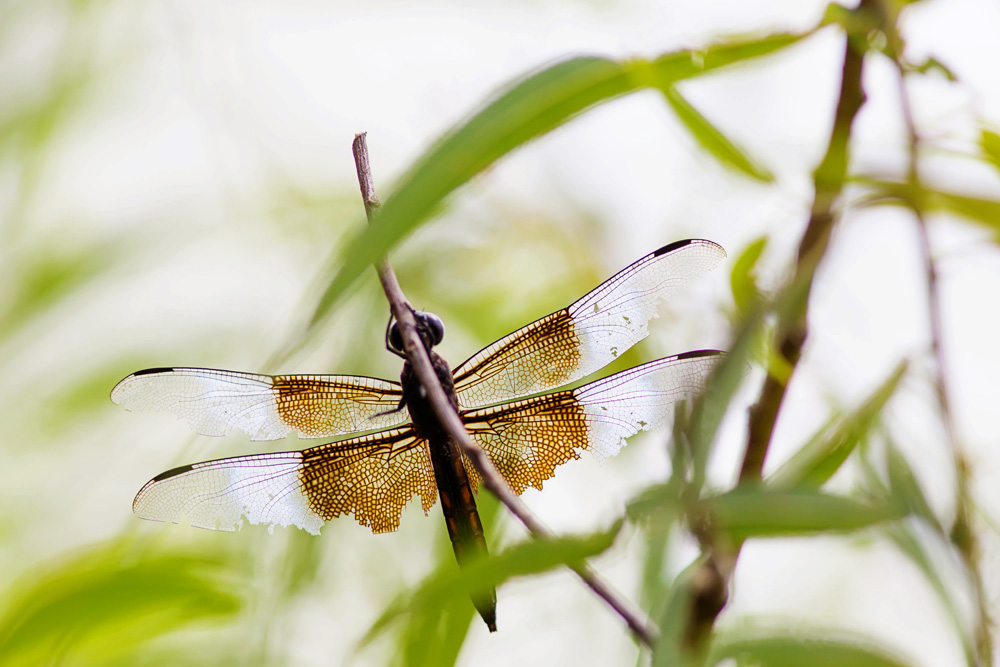
Suddenly the broken wings of this creature, arriving just as my mom completed her journey through this life, struck me as so beautiful. I felt like I could see the dragonfly’s intricacy clearly for the first time as the bloom of its life began to fade away. I found it poignant that it had sustained damage–from a bird attack? from flying clumsily through a fence? from the cumulative hard knocks of surviving?–and still kept going.
For my mom, the hard knocks had started four years earlier, with her first cancer diagnosis. This cancer was highly treatable; we gave ourselves no room to think she wouldn’t make it into remission. And she did, despite the chemo damaging her body and poking a few holes in her previously unshakeable sunny outlook on life. But a year and a half later she was diagnosed with an entirely different kind of tumor, one whose five-year survival rate hovered in the decimal range just above zero percent. We were going to lose her, and it was going to be soon.
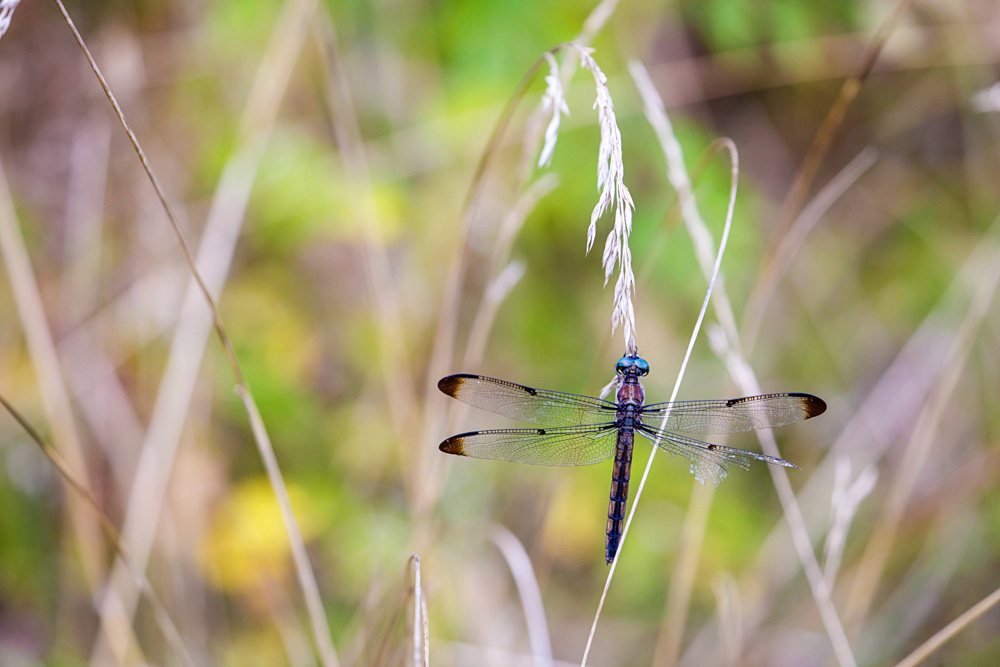
I flailed. It felt like watching the North star burn out before my eyes, anticipating living the rest of my life with a black hole where my mom’s light had always been. During these last 19 months I wound up having with her, the only thing that could allow me to turn off the faucet of anguish for a few minutes at a time was planting myself among creatures with wings. And that’s when I started to gravitate toward the faded, the worn, the obviously-attacked, the nearly-gone.
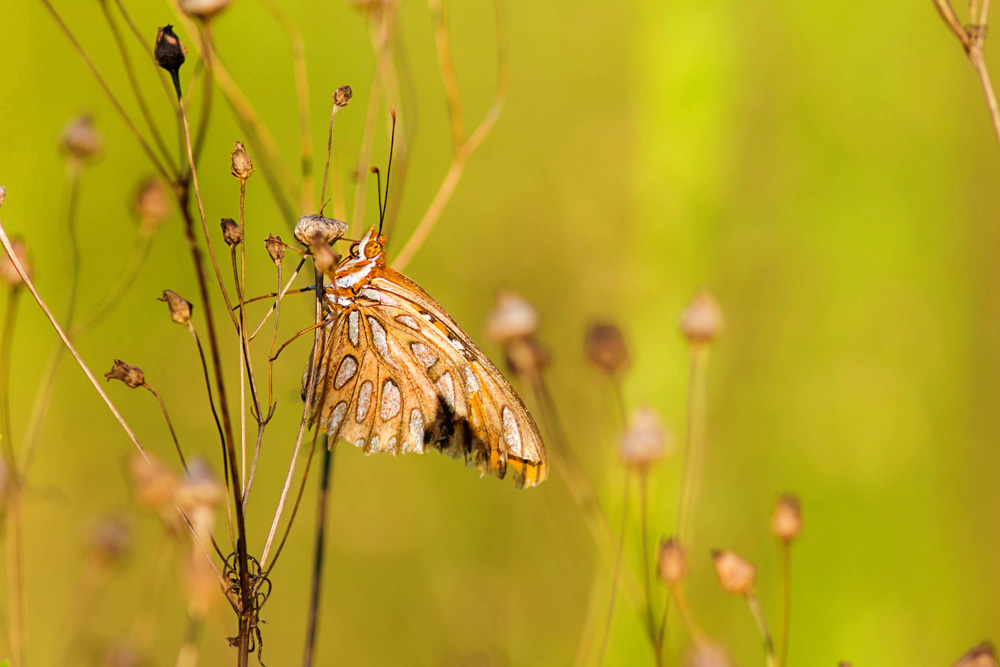
Watching these dragonflies and butterflies continue to whirl and dance and hunt and drink deeply, I also watched my mom, packing these last months with as much life as she could fit into them. She welcomed her first grandchild, my nephew, and made sure to fill his ears with the sounds of lullabies. She and I took the trip to France we’d been promising each other for ten years, and she put her planning skills to work making sure she knew where to find the very best éclairs. She had a ball at her 40-year high school reunion despite being so frail she’d go into the hospital for the last time just a day later. There were days so wrenching I don’t know how we didn’t fall to pieces, and days so beautiful I can’t believe I got to live them.
And on those bad days, there were butterflies, promising that even if the particular individual capturing my heart might not make it much longer, I could still lose myself in a cloud of fluttering wings even after the worst happened.
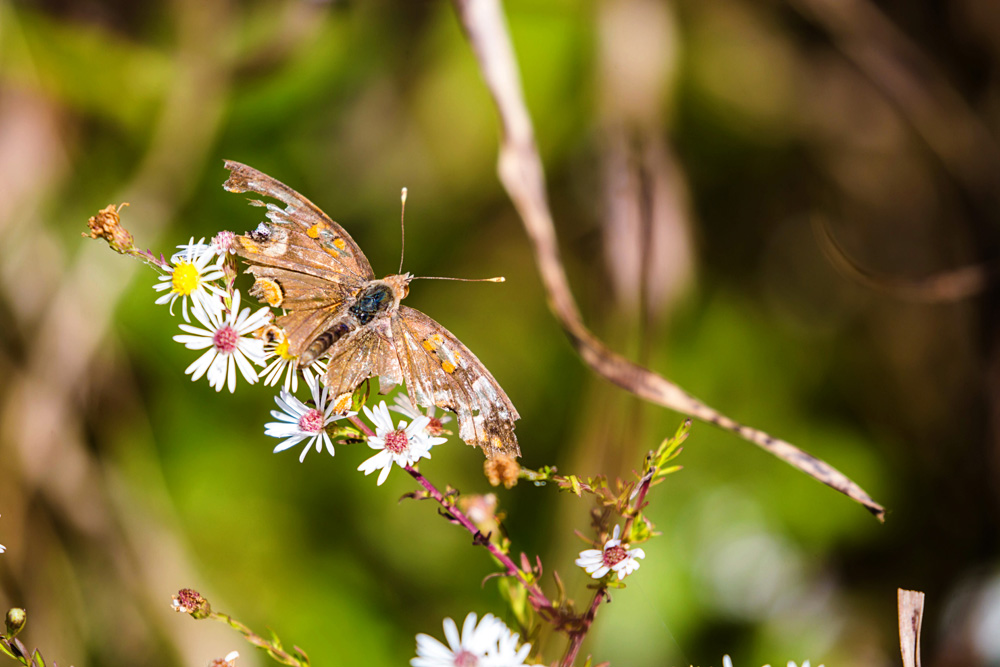
This week marks seven years since my mom left me to my winged caretakers. Since then I’ve lost my dad and all my remaining grandparents too–pieces of my heart that I won’t ever get back. But I carry my own broken wings with a sense that I’ve earned them, and that there’s beauty in the carrying-on. I have a new openness to vulnerability that comes from understanding that sharing my wounds binds me with other people walking the paths of illness, trauma, heartbreak, and loss.
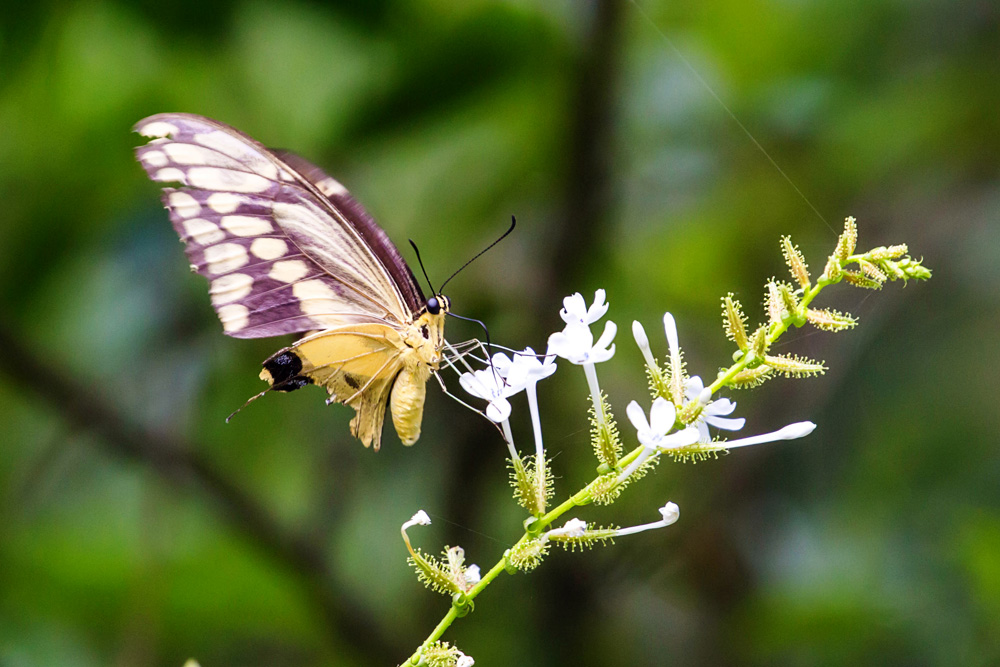
This summer I went back to France, alone this time. Walking through Paris, I missed my mom so intensely that I cried all the way through the Jardin des Tuileries, where we’d once spent such a joyful morning together. I felt so lucky to be back, but it was tinged with sorrow that she wasn’t there to enjoy it with me. After a few days in the city, I moved south to join a tour group searching for butterflies in the Alps. During a week of almost uninterrupted sunshine, we encountered a brief torrential downpour one afternoon that had the effect of subduing all the butterflies. As we walked along a freshly-damp hillside, one of our guides told me to extend my hand, and on it he placed an Apollo, a butterfly whose wings are both massive and so delicate that they’re partially translucent.

It was punch-drunk, needing to dry off before it could fly again, but in the meantime we needed to keep it off the trail so it wouldn’t get trampled. Holding this creature, so robust in flight but so vulnerable with its sodden wings, I felt a piece of me stitch back together. Sometimes it’s another person who holds us when we’re helpless; sometimes it’s the knowledge that the world is vast and full of living treasures to discover and protect.
That’s what will keep propelling me forward through whatever time I have left on this earth: the belief that there’s no end to the beauty, even when we feel broken.



